SUMMARY
This is AI generated summarization, which may have errors. For context, always refer to the full article.
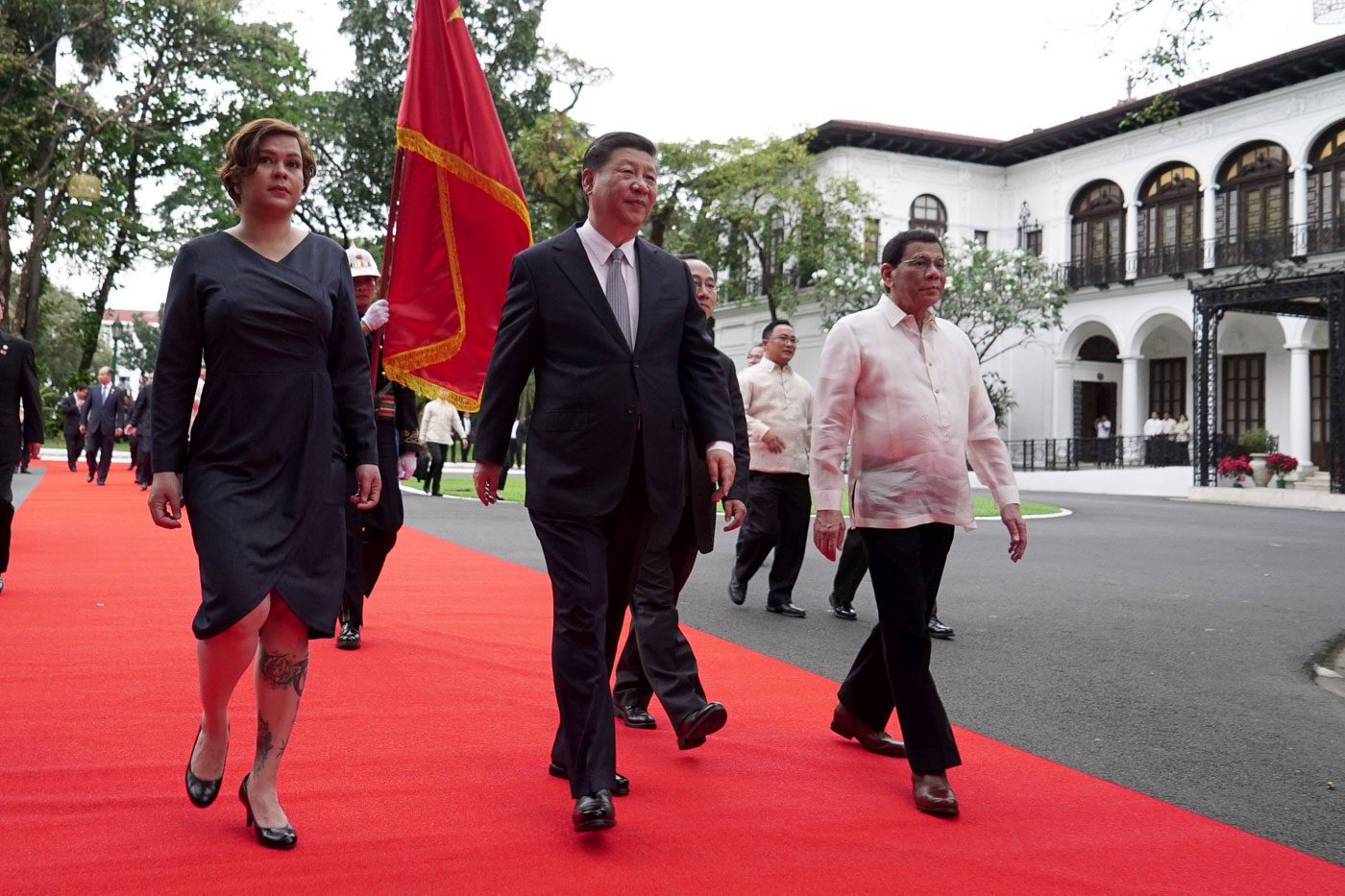
MANILA, Philippines – Last week, the Philippines began a “new trilateral chapter” with the United States and Japan – two countries which, once upon a time, were its colonizers.
The White House was host to the first-ever trilateral leaders summit between US President Joe Biden, Japan Prime Minister Kishida Fumio, and Philippine President Ferdinand Marcos Jr.
Several high-level meetings preceded and followed that trilateral summit – a state visit by Kishida to the White House, a bilateral meeting between Biden and Marcos, meetings between the foreign ministers of Japan and the Philippines, and what seems to be the first-ever 3 + 3 meeting of the US and the Philippines between its foreign and defense secretaries, and national security advisers.
The three countries “expressed… serious concern” over Chinese actions both in the South China Sea and the East China Sea, bodies of water that separate China from the Philippines and Japan, respectively.
“We reiterate serious concern over the PRC’s repeated obstruction of Philippine vessels’ exercise of high seas freedom of navigation and the disruption of supply lines to Second Thomas Shoal, which constitute dangerous and destabilizing conduct. The final and legally binding July 12, 2016 Arbitral Tribunal determined that this feature lies within the Philippines’ exclusive economic zone, and we call on the PRC to abide by the ruling,” read their joint statement.
That declaration was immediately followed by a similar expression of “serious concerns regarding the situation in the East China Sea,” and opposition to China’s attempts to “unilaterally change the status quo by force or coercion in the East China Sea, including through actions that seek to undermine Japan’s longstanding and peaceful administration of the Senkaku Islands.”
And then: “We affirm the importance of peace and stability across the Taiwan Strait as an indispensable element of global security and prosperity, recognize that there is no change in our basic positions on Taiwan, and call for a peaceful resolution of cross-Strait issues.”
Biden also affirmed US alliance commitments with both Japan and the Philippines.
The importance of managing tensions both in the South China Sea (specifically, the West Philippine Sea) and the Taiwan Strait, is existential for the Philippines. The West Philippine Sea encompasses an area that includes the country’s exclusive economic zone and areas where it claims sovereignty, and Marcos has himself said it’d be “hard to imagine” a non-involved Philippines should tensions in the Taiwan Strait hit a boiling point.
That the Ayungin or Second Thomas Shoal, the Senkaku Islands, and the Taiwan Strait are mentioned one after another in a statement issued by the leaders of the Philippines and Japan, alongside the commander-in-chief of their superpower ally, is huge.
Interlocutors, analysts, and even diplomats themselves have described the Marcos administrations’ foreign policy direction as its “resumption” of a path it had always taken – alongside the West and fellow democracies.
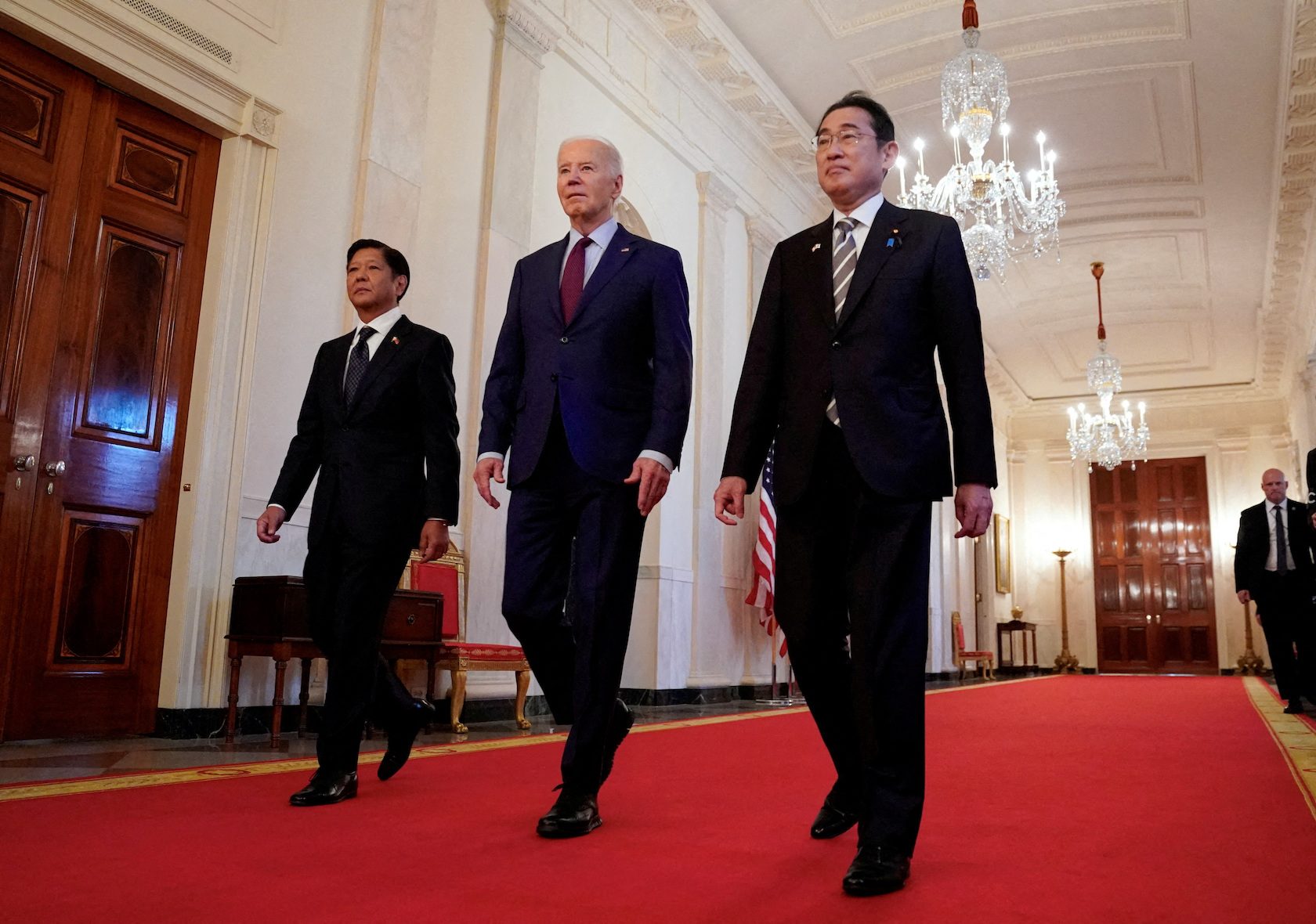
The creation – and the continuation – of this three-way relationship “is in the best interest of Manila,” according to geopolitical analyst Don McLain Gill, a lecturer at the De La Salle University’s International Studies department. “The trilateral has strongly emphasized the need for all three democracies to enhance individual and collective defense and economic resilience to better address China’s multidimensional sources of power projection,” he added.
Remember that among Manila’s advantages is its defense networks, according to the Lowy Institute.
China isn’t pleased.
Right after the summit, the China’s Ministry of Foreign Affairs in Beijing summoned the ambassadors of both Tokyo and Manila to make “solemn representations” over “negative words and deeds” about China during the summit. “To know whether the trilateral summit and cooperation is truly not aimed at China, the answer is right there in the trilateral statement. What else could it be if it’s not a smear and attack against China?” said Beijing’s foreign ministry spokesperson Mao Ning.
China claims almost all of the South China Sea, including Ayungin Shoal, which is within the Philippines’ exclusive economic zone. This is in defiance of a 2016 Arbitral Award that rejected China’s 10-dash line (it was a 9-dash then).
Duterte disowns ‘deal’
Meanwhile, miles away from Washington or Beijing, former president Rodrigo Duterte denied having made a “gentleman’s agreement” between the Philippines and China over Ayungin Shoal.
“That’s what I remember. If it were a gentleman’s agreement, it would always have been an agreement to keep the peace in the South China Sea,” he told a press conference in Davao on April 12.
Former human rights lawyer and Duterte spokesperson Harry Roque earlier confirmed that a deal was made between the Duterte administration and China to “respect the status quo” in the West Philippine Sea. But then another former Duterte spokesperson, Salvador Panelo, claimed no deal on Ayungin was made.
Roque would later “clarify” that while a deal was made, it did not tackle specifics such as resupply missions to Ayungin Shoal.
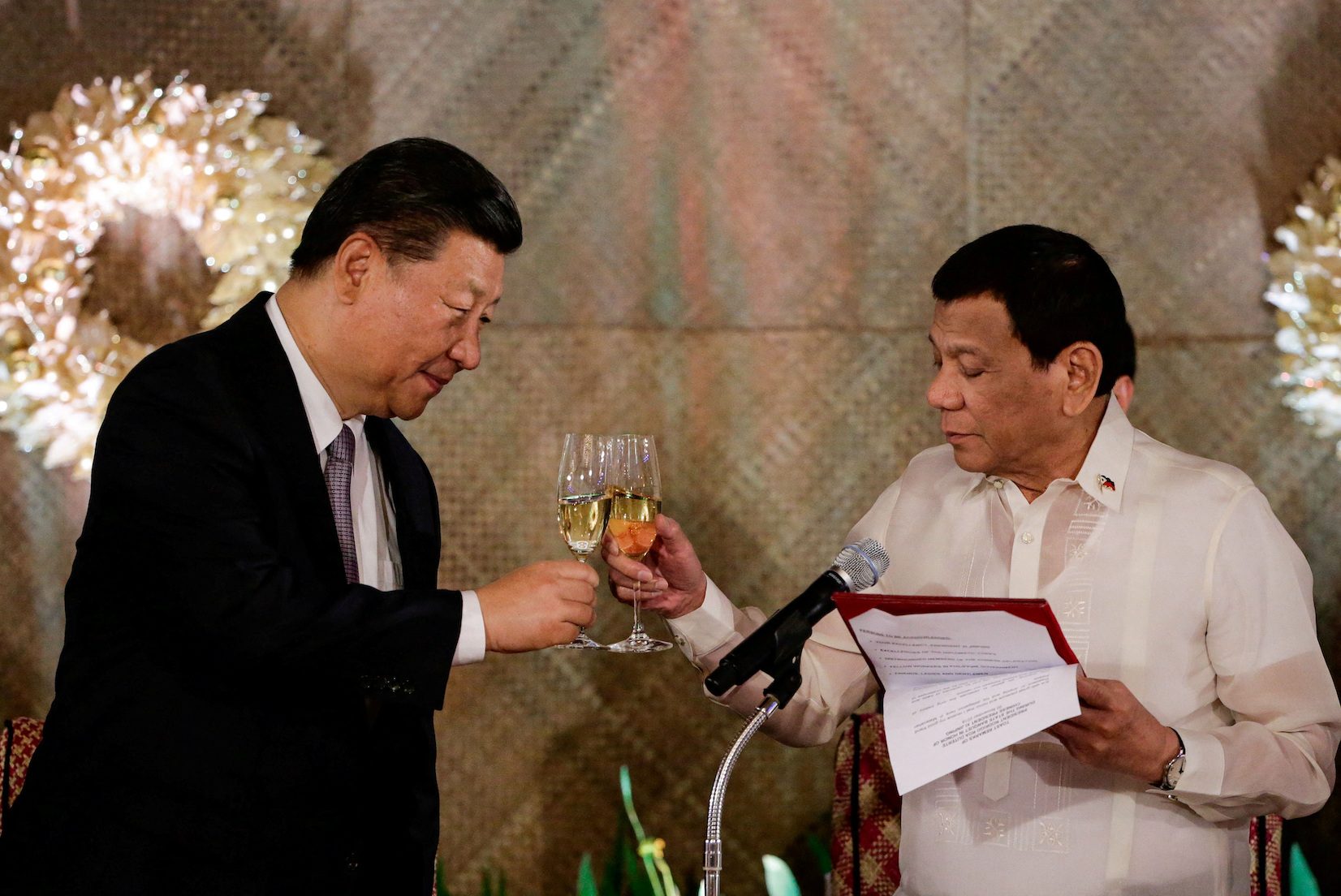
It was a senior Chinese official, speaking to Philippine media on the condition of anonymity, who resurfaced the supposed “understanding” between Duterte and China. That Chinese official recalled that under the conditions of the deal, China would not harass rotation and resupply mission to BRP Sierra Madre as long as the Philippines did not “bring in large-scale building materials to Ayungin Shoal.”
In other words, China claimed that Duterte promised not to reinforce the rusting Sierra Madre, which serves as the country’s military outpost in that area.
In a statement on April 11, the Chinese embassy in Manila said: “Thanks to the understandings and agreements reached by the two sides, the overall peace and stability at Ren’ai Jiao [China’s name for Ayungin or Second Thomas Shoal] was maintained in the past few years. And also because the understandings and agreements were no longer adhered to, the situation around Ren’ai Jiao became difficult and incidents happened once and again.”
Marcos said he knows nothing about the “gentlemen’s agreement” and was “horrified by the idea that we have compromised, through a secret agreement, the territory, the sovereignty, and the sovereign rights of the Filipinos.”
There seems to be no official document or memorandum that records this agreement – at least not as far as Manila is concerned. Reporters in Manila have repeatedly asked the Chinese embassy here to show proof, documentation – anything, really – of this agreement.
It’s also not hard to imagine that Duterte was confused – over what agreement China was referring to, or consequences of these terms over specific features in the West Philippine Sea. After all, this is the same man who confused Benham Rise (located east of the Philippines, in the Philippine Sea) for the West Philippine Sea.
Duterte’s focus then (aside from turning away from the US and pivoting towards China) was making sure that Filipino fisherfolk were able to enjoy the bounty of the West Philippine Sea. His administration was also not enthusiastic about the 2016 Arbitral Ruling.
No comment
His daughter, Vice President Sara Duterte, has chosen the path of silence. Amid China’s harassment in the West Philippine Sea, “no comment” was all the former Davao mayor had to say.
Marcos sought to explain the Vice President’s silence. “I think we are all in line because I’m very sure that if Inday Sara had some very serious misgivings about what we are doing in terms of foreign policies, she would bring that to me,” he said, speaking to Philippine media before leaving Washington DC.
Military officers, in public and in private, will tell you that Marcos’ instructions with regards to the Sierra Madre are clear: it should be manned at all times, and the Philippines must never abandon it. The Philippines has become more and more active in defending its sovereign rights and asserting sovereignty claims in the West Philippine Sea.
How can the Philippine Coast Guard, still catching up from years of neglect, carry that mission out? More crucially, how is the Philippine military supposed to carry that out?
The acquisition wishlist that is Horizon 3 has been approved but has not yet been made public.
While trade and development promises were flexed hard during the trilateral summit, the US and Japan are also making commitments to helping strengthen the maritime and military forces not just through new toys and gadgets, but through training and interoperability exercises.
We expect to see more joint sails among the navies and coast guards of the three counties. Joint exercises and patrols in the Indo-Pacific are also on the horizon. By next week, the Philippines kicks off Balikatan 2024 – the biggest of its joint exercises with US troops. – Rappler.com
Add a comment
How does this make you feel?
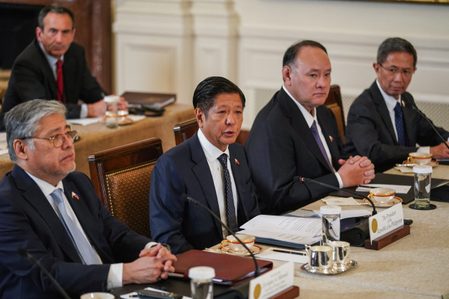



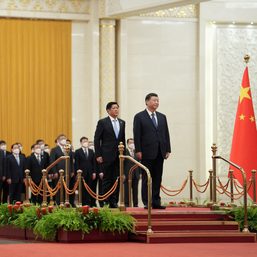



![[OPINION] Rodrigo Duterte and his ‘unconditional love’ for China](https://www.rappler.com/tachyon/2024/04/rodrigo-duterte-xi-jinping-august-2019.jpeg?resize=257%2C257&crop=91px%2C0px%2C900px%2C900px)



![[The Slingshot] Lito Patay’s 4 hours and 38 minutes of infamy](https://www.rappler.com/tachyon/2024/07/Lito-Patay-4-hours-infamy-July-19-2024.jpg?resize=257%2C257&crop=233px%2C0px%2C720px%2C720px)
![[Vantage Point] China’s silent invasion of the Philippines](https://www.rappler.com/tachyon/2024/07/TL-china-silent-invasion-july-16-2024.jpg?resize=257%2C257&crop=318px%2C0px%2C720px%2C720px)

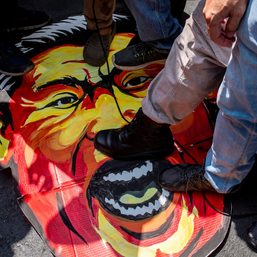
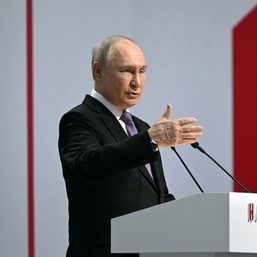
There are no comments yet. Add your comment to start the conversation.